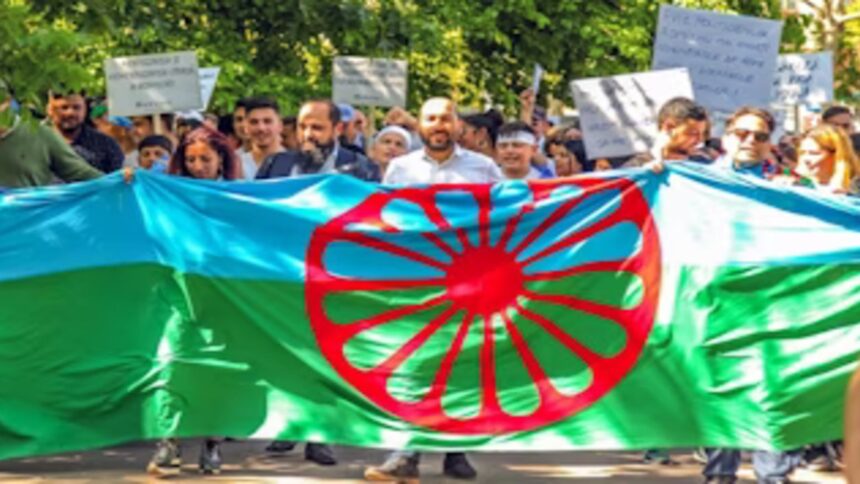By Martin Banks
EC president Ursula von der Leyen’s State of the Union has acknowledged Europe’s social crisis and the need for fair competitiveness.
However, a campaign group says that without Roma economic and political empowerment, both Europe’s economy and democracy will remain incomplete.
That is the view of The Roma Foundation for Europe (RFE).
It says it welcomes the Quality Jobs Act, the European Anti-Poverty Strategy, and the new packages on affordability and the cost of living as important commitments.
But the RFE warned that its success will depend on whether they reach those most excluded from work and security.
“Economic exclusion is not a minority issue but a threat to the very foundation of the European project”, said Neda Korunovska, Vice President for Analytics and Results at the Roma Foundation for Europe.
As RFE’s recent report argues, the economic cost of leaving Roma behind “is huge.”
“Achieving employment parity could deliver up to €10 billion in additional GDP across the EU every year. In Romania alone, parity would generate €10.3 billion in GDP annually, a 2.3% increase. In Bulgaria, the gain would be €1.95 billion (2.07% of GDP), and in Slovakia €3.49 billion (over 10% of GDP),” she added.
To address the gaps, RFE advised that:
The Quality Jobs Act must create genuine pathways to formal, decent employment.
Today, only 43% of Roma adults are employed, and just 28% of Roma women.
The RRE says, “Closing this gap is crucial if Europe is serious about competitiveness and does not want to miss out on the talent of its youngest and fastest-growing minority.”
In addition, the European Anti-Poverty Strategy addresses a pressing need. 56% of Roma youth are not in education, employment, or training, nearly five times the EU average of 11.7%.
Without tackling this by scaling up training and removing structural barriers to employment, Europe cannot hope to meet its poverty-reduction goals, argues RFE.
Also, the affordability and cost of living measures must be designed with households like Roma families in mind. In RFE’s 2024 polling, Roma identified the cost of living (21%) and unemployment (11%) as their top concerns.
The RRE also welcomes the announcement of a European Centre for Democratic Resilience.
For Roma, elections have too often meant pressure, intimidation, and now disinformation, despite being among the EU’s strongest supporters.
For the Centre to be credible, it must prioritise and protect those who still believe in Europe even when Europe falls short, and strengthen their voices, staes the REF















Leave a comment